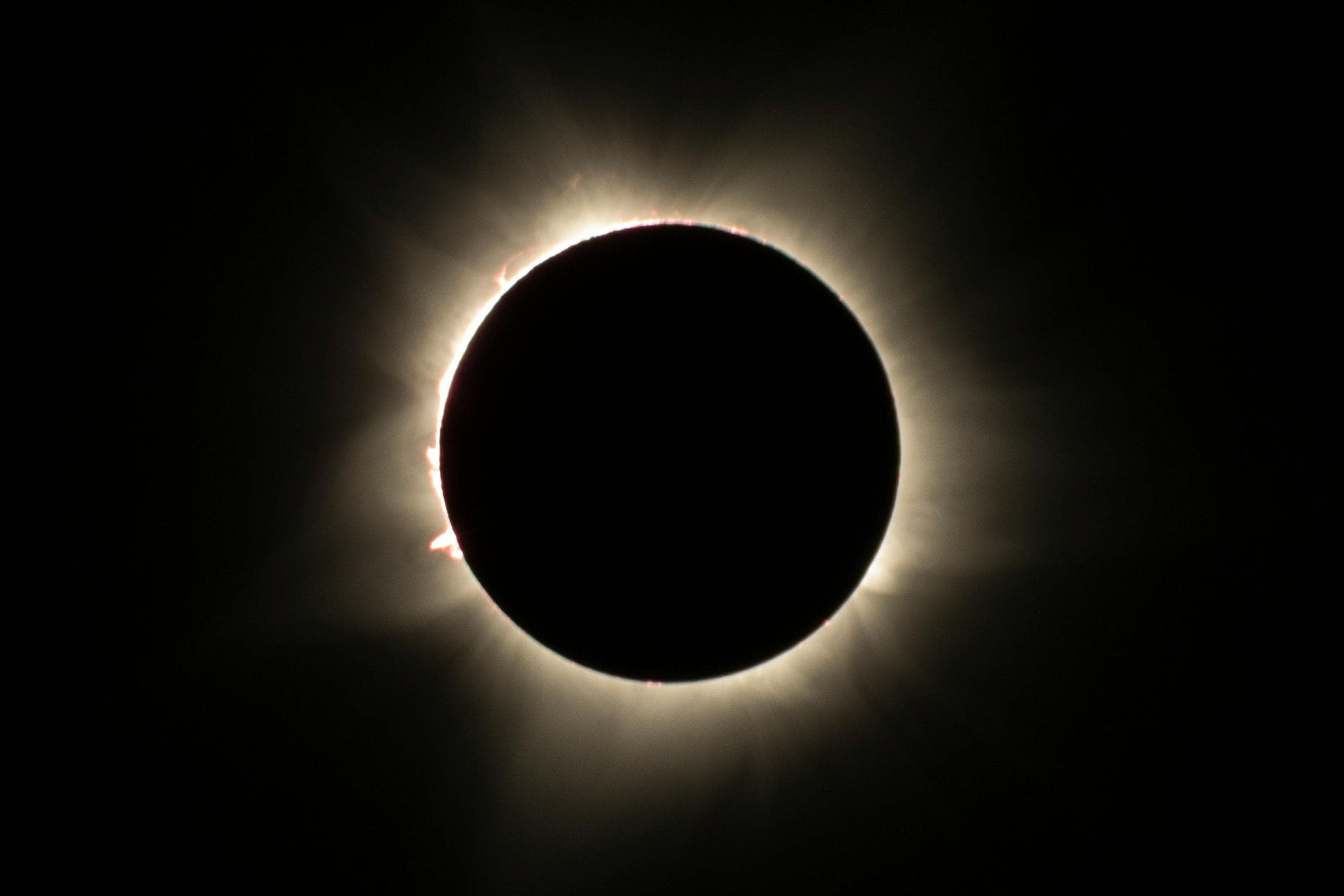How do you pray Salat al-Kusuf – the prayer during a solar eclipse

There are varied opinions among scholars on how to pray salat al-kusuf or salat al-khusuf, which is a sunnah prayer the Prophet (peace be upon him) performed during a solar eclipse (when a planet blocks out the sun).
The salah is performed during the duration of the eclipse, which usually lasts a few minutes.
There are two opinions on how many ruku and sujud there are.
In the Hanafi school it is two rak’ahs in total, as any nafilah, with one ruku’ in each rak’ah. The ruku is prolonged.
As the Prophet’s (peace be upon him) ruku was so prolonged, the people behind him could not see him and thought he had done two ruku.
For Muslims, an eclipse is a time of seeking Allah’s forgiveness. The sun and moon are signs of Allah’s greatness:
And He is the One Who created the day and the night, the sun and the moon—each traveling in an orbit. [21:33]
Aisha (may Allah be pleased with her) narrated that that when there was an eclipse the Prophet (peace be upon him) performed salat al-khusuf and then:
He delivered the Khutba (sermon) and after praising and glorifying Allah he said, “The sun and the moon are two signs against the signs of Allah; they do not eclipse on the death or life of anyone. So when you see the eclipse, remember Allah and say Takbir, pray and give Sadaqa.” [Bukhari]
- The truth is more powerful than lies
- Does a bride’s wali have to be Muslim?
- Is is permissible to lead a salah split over different rooms?
- Global IT outage. When systems go down…
- The concept of worship. What are ibadah and ihsan – and how do they lead to self development?
Recommended Posts

Does a bride’s wali have to be Muslim?
July 25, 2024

Can I remove my hijab for a scan?
June 26, 2024

